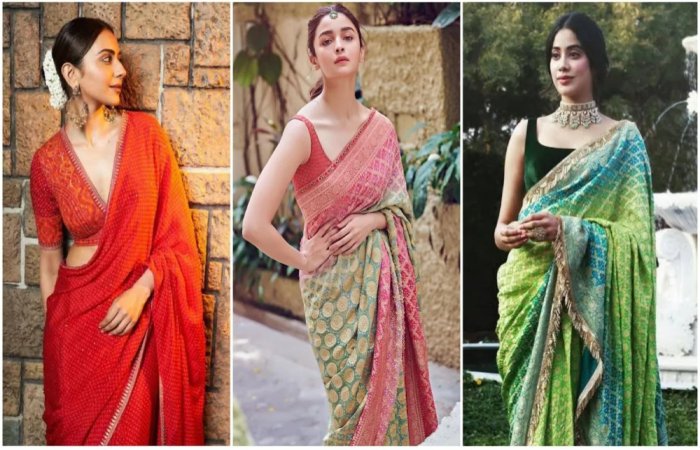Saree Write For Us
 The saree is a rectangular piece of cloth that measures about 1 meter wide by six long. Most are made of cotton or silk, although there are also synthetic ones. They are usually bright colors. The Sari is dressed in a tight-fitting blouse called a choli that exposes the belly and with a cotton skirt, or petticoat called a petikot that, in addition to keeping the Sari from being transparent, helps to hold the folds of it.
The saree is a rectangular piece of cloth that measures about 1 meter wide by six long. Most are made of cotton or silk, although there are also synthetic ones. They are usually bright colors. The Sari is dressed in a tight-fitting blouse called a choli that exposes the belly and with a cotton skirt, or petticoat called a petikot that, in addition to keeping the Sari from being transparent, helps to hold the folds of it.
Indian women, and some men, who have wrapped themselves in silk, cotton, or linen for millennia, these swathes of cloth are more than just garments. They are symbols of national pride, ambassadors of traditional (and avant-garde) crafts and design, and a prime example of the vast differences across India’s 29 states.
The Color of Sarees
There is a symbology behind each of the colors of the sarees that allows us to know many details about the situation of people in India. The sarees reveal as much as they hide. In their culture, for example, red is the color of the warrior classes, a sign of bravery that represents joy, happiness, well-being, and passion, used by both brides and married women. The color yellow is also an auspicious color that is traditionally associates with religion and asceticism. New mothers wear yellow-colored sarees in certain regions for seven days after the birth of a child.
White in Indian culture is traditionally associated with the color of the garments of the Brahmins, the spiritual leaders. In the recent past, it believes that any type of color was impure, and this is why today, white garments use in ritual occasions such as pujas and by widows, who wear white sarees that are not worn—no type of decoration. Widows do not use black as in many Western countries, Indians consider it an unfavorable color related to bad luck, and we will hardly find traces of black in India.
How to wear a saree?
The Sari was born in the 17th century BC, assimilating the robes covering the priests and expressing Hindu spirituality and religion. Therefore, it is worn throughout the Indian continent from Nepal, Pakistan, Malaysia, and Sri Lanka by men and women.
Being a garment that shows one part of the body and hides another, the fabric must adapt well to the body so that it looks elegant and sensual at the same time. It can dress in different ways. Some of them require a fabric of a specific shape or length. A sari can be worn in Bengali, Gujarati, Marathi, Dravida, Madisara, Kodagu, Gond, or Tribal style. But, without a doubt, the most popular type is the “nivi,” originally from the region of Andhra Pradesh in the southeast of India.
The first step is to tuck the edge of the Sari around the waist of the petticoat, then fold it together just in front of the navel. The core of the petticoat also holds up the top of the pleats. The loose end is called a pallu or pallav. It crosses diagonally in front of the torso, from the right hip to the left shoulder, so the stomach is partially visible. So the navel can be hidden or visible depending on the wearer’s preference. Therefore, the pallu can be left hanging or used to cover the head, passing it over the right shoulder.
How to Submit Your Articles
To submit a guest post, please get in touch with us at beautysguide.com with the subject “Guest Post for beautys guide.” After submitting your article, our team will analyze it, check if the content is unique, and accept it. So for sure, our publishing team will contact you within 24 hours.
To submit your articles, you can Email us at Contact@BeautysGuide.com
Why Write for beautys guide – Saree Write for Us

To submit your articles, you can Email us at Contact@BeautysGuide.com
Guidelines for Article to Writing Saree Write for Us

You can send your article to Contact@BeautysGuide.com.
